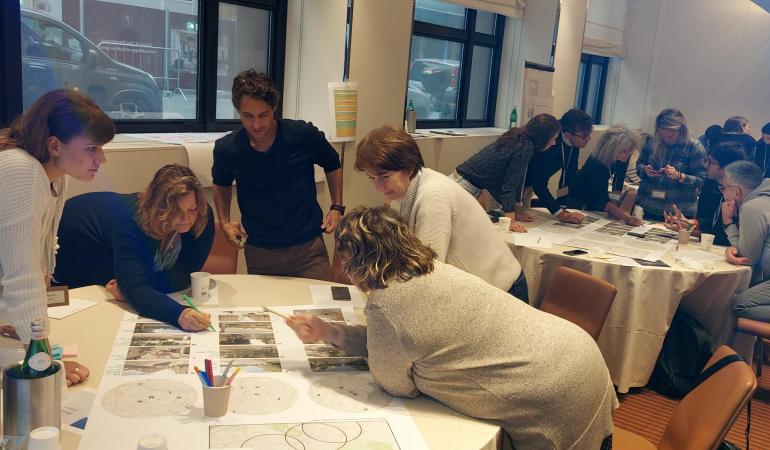
Children's mental health and cognitive development are shaped by various factors, with early life exposure being particularly influential. Whether these exposures involve social challenges, physical challenges, or positive stimuli, the experiences children have early in life can have profound and lasting effects. As awareness of these impacts rises, it becomes increasingly important to engage stakeholders in discussions and actions that aim to create healthier environments for children. The Equal-Life project is committed to involve stakeholders from its outset to help develop a science-policy strategy that addresses these issues.
Understanding early life exposure
Early life exposure encompasses the environmental, social, and biological factors that children encounter from conception through (early) childhood. Providing a promising start for children includes focusing on mental health, cognitive development, and the creation of supportive and beneficial environments for all children. Equal-Life is an interdisciplinary European project dedicated to studying the relationship between early life exposures and mental health and cognitive outcomes later in life. Over its five-and-a-half-year timeline, Equal-Life actively engages stakeholders through multiple co-design workshops, comprehensive interviews, and training sessions in several European contexts. This way, we aim to increase the likelihood that the findings of Equal-Life match the needs of stakeholders in practice, which in turn has influence on its implementation in the future.
The importance of stakeholder engagement
Stakeholders play a crucial role in shaping the environments that influence children's development. Engaging them effectively is key to ensuring that actions are taken to reduce negative exposures and promote positive ones. Stakeholders bring diverse perspectives and expertise, leading to a more comprehensive understanding of the issues. For example, healthcare providers can offer insights into the biological impacts of early exposures, while educators can highlight the cognitive and behavioral effects observed in the classroom. To facilitate this, Equal-Life has developed a co-design approach that helps stakeholders clarify how they can use research evidence in their work.
Moreover, engaging policymakers is vital for developing regulations and policies that protect children from harmful exposures. For instance, legislation that limits the exposure to noise and air pollution and enhances restorative green places residential areas, can significantly reduce the risk of cognitive impairments in children. Additionally, involving community stakeholders, including public health officials, environmental groups, and local organizations, empowers them to advocate for healthier environments and make informed decisions that benefit children's development.
Strategies for effective stakeholder engagement
Equal-Life employs a multifaceted approach to effectively engage with stakeholders. The project informs them about the significance of early life exposure and its impact on children's development through workshops, webinars, training sessions, and informational materials. Stakeholders have also contributed to the development of the project's research questions. Furthermore, Equal-Life fosters collaborations between healthcare providers, educators, policymakers, and community organizations, facilitating the sharing of knowledge and resources for more effective interventions.
Engaging stakeholders also comes with challenges, such as differing priorities, limited resources, and varying levels of awareness and understanding of the issues. Overcoming these challenges requires patience, persistence, and a commitment to ongoing dialogue and collaboration.
The Equal-Life team realizes that the effort of stakeholders taking part in discussions about early life exposure and its impact on children's mental health and cognitive development is essential for creating healthier environments that support optimal growth and well-being. Learnings and tools for stakeholder engagement as experienced throughout this project will be incorporated into the Equal-Life toolbox. With this, we hope to increase the likelihood for future exposome and mental health and cognitive development work to be continued in close collaboration with stakeholders.